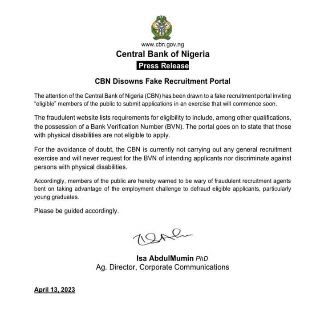Unlocking Nigerian Prosperity: How Smart Taxation Fuels Growth.
Nigeria’s tax system is an instrument of domestic resource mobilisation, and a reliable contribution to the country’s fiscal revenue through its Ministries, Department and Agencies (MDAs), though, its remittances have not been commensurate with the economic size.
The Federal Inland Revenue Service (FIRS), the federal tax collector, said it was able to generate over N10 trillion in 2022, the highest figures in the agency’s history.
However, economy watchers are quick to raise alarm that the N10 trillion declared by the agency is grossly inadequate, due to Nigeria’s size and volume of business as the largest economy in the African continent.
The Nigeria Extractive Industries Transparency Initiative (NEITI), said that some companies operating in the oil and mining sectors underpaid over 10 billion dollars in taxes and royalties to the federal government.
Moreso, the International Monitory Fund (IMF) has tasked the federal government to increase its tax to nine per cent to its Gross Domestic Product (GDP) so as to boost the country’s revenues and address development challenges.
President Bola Tinubu has, therefore, appointed the fiscal policy expert from the PriceWaterhouseCoopers, Mr Taiwo Oyedele, a tax guru, to raise the revenue target of 18 per cent tax to GDP ratio, as against the current below eight per cent.
Upon his appointment, he initiated a proposal to shift more of the burden to the wealthy while reducing corporate income tax rate below 40 per cent to boost businesses.
For the government to achieve the 18 per cent tax to GDP and enhance the country’s revenue earnings, some experts, including the Chief Executive Officer, Centre of the Promotion of Private Enterprises (CPPE), Dr Muda Yusuf, have outlined ways of implementing the policy.
Yusuf welcomed the planned tax hike, describing it as a welcome development.
“This approach is a form of progressive tax, because high net worth individuals are expected to pay more tax to the government.
“It is a means of income redistribution and a common practice in civilised countries where there is often economic development,” Yusuf said.
He noted that it is a worrisome development that most wealthy people in the country do not often pay the right percentages of taxes to relevant government authorities.
“Their tax remittances is not commensurate to their net worth and affluence lifestyle, adding that they might be short-changing the government,” Yusuf said.
In his opinion, a former President of the Chartered Institute of Taxation of Nigeria (CITAN), Dr McAntony Dike, described as constitutional the plan to tax more people.
“Our tax laws dictate that any one who earned an income legitimately or otherwise must pay their taxes.
“Indeed, the personal Income Tax Act 2011 (as amended) removed the exemptions total granted to the President of Nigeria Republic, adding that if you earn an income legitimately, you must pay tax,” Dike said.
He noted that many of the rich people in Nigeria do not pay their fair share, thereby denying government the required revenue to provide public goods for the citizen.
“As a matter of fact, a country like South Africa has demonstrated greater tax compliance culture than we have in Nigeria.
“Indeed, before the advent of Value Added Tax (VAT) in South Africa in the late 1990s, personal income tax contribute close to 60 per cent of the total income tax collection in that country,” Dike said.
Also speaking, the president Standard Shareholders Association of Nigeria (SSAN), Godwin Anono, said that imposition of tax on more wealthy Nigerians was a novel initiative.
“The proposed policy is some sort of reduction of inequality in our society where the elite are expected to take care of the most economically vulnerable citizen through paying its fair-share of tax,” Anono said.
He asked the federal government to harness latest technology to bring more eligible tax payers into the tax net, particularly people in the informal sector who are making money without remitting any means of levies to the authorities.
He further challenged the government to be prudent and transparent with public funds so as to enhance the social contract between the government and the people.











